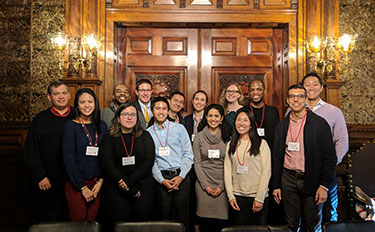College life brings with it inherent changes. Living away from home for the first time, navigating an aggressive course load that zig-zags across campus, managing finances, and balancing ambitious schedules is just a short list of the new experiences that could be daunting for the average first-year.
For the 11.6 percent of Brown undergraduates who identify as first-generation (those whose parents did not complete a four-year education), such challenges can feel amplified without someone at home guiding them through their college journey.
“Flipping the paradigm”
But they're not having to find their way alone. Thanks to on-campus resources and a group of engaged alumni, there's more support than ever for "first-gen" students.
"Many of the students who visit us are looking to understand what Brown is about," says Julio Reyes ’12, program director for the newly renamed U-FLi Center (Undocumented, First-Generation College and Low-Income Student Center). "They have had limited interactions with places of higher education, or there's something about Brown specifically that is new to them."
The work of the center, which opened in 2016 on the fifth floor of the SciLi is three-fold: In addition to advising and connecting students to resources on campus, Reyes and his staff have created a speaker series and scholars program, and continuously engage with University administrators on how they can best support these students.
"Our focus is on flipping the paradigm of how people think about these students," he explains. "We want them to be recognized for their strengths. And we want first-gen students to understand that they have the capital and assets to succeed; we just help them map those strengths onto the Brown experience."
 Since forming, the alumni group has focused on strengthening its connection with first-generation alumni and students. There are now regular events that bring alumni to campus to talk about their academic and professional journeys, as well as a reception during Commencement Weekend—and other events are in the works.
Since forming, the alumni group has focused on strengthening its connection with first-generation alumni and students. There are now regular events that bring alumni to campus to talk about their academic and professional journeys, as well as a reception during Commencement Weekend—and other events are in the works.